
Search for the term ‘tongue scraper’ on TikTok and you’ll be met with an avalanche of videos extolling the virtues of small tongue-cleaning devices that resemble a cross between a vegetable peeler and a bottle opener. Perhaps, in pursuit of a brighter, fresher gape, you’ve had a go with a tongue scraper yourself. But what does the science say about these tools? Should you be spending extra time scraping bacteria off your tongue? And will it help you if you’re prone to bad breath?
WHAT’S THE IDEA BEHIND TONGUE SCRAPING?
The thinking is straightforward: cleaning your tongue helps reduce the build-up of debris and bacteria that can give it an unpleasant tinge and cause bad breath.
A healthy mouth contains around 700 species of bacteria. But as Dr Zoe Brookes, associate professor of dental education and research at the University of Plymouth, explains, poor oral hygiene and build-up of bacterial coatings or films on the tongue can drive down diversity and allow anaerobic species (those that grow without oxygen) to dominate. These species thrive in pits at the back of the tongue, where they break down proteins in food and saliva to produce the smelly, sulphurous compounds linked to bad breath.
“The more mature this film is, the more anaerobic bacteria there are – the more smell-producing bacteria,” says Brookes. “So, the idea is that these tongue scrapers are going to pull this film off, get rid of all the smelly bacteria and then you get a healthy microbiome.”
Esta historia es de la edición February 2024 de BBC Science Focus.
Comience su prueba gratuita de Magzter GOLD de 7 días para acceder a miles de historias premium seleccionadas y a más de 9,000 revistas y periódicos.
Ya eres suscriptor ? Conectar
Esta historia es de la edición February 2024 de BBC Science Focus.
Comience su prueba gratuita de Magzter GOLD de 7 días para acceder a miles de historias premium seleccionadas y a más de 9,000 revistas y periódicos.
Ya eres suscriptor? Conectar
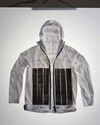
NOW YOU SEE ME, NOW YOU DON'T
Scientists around the world are working on ways to hide us from sight. But how close are we to developing tech that could make us invisible?

UNCORKED POTENTIAL
How much good can ditching drink for a month really do? Answer: a whole lot. In fact, science shows even short-term abstinence could unlock a cocktail of lasting benefits
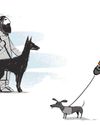
Scientists discover when humans and dogs became friends
The relationship spans thousands of years, but experts might have pinpointed the first connection
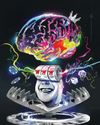
Why it's so hard to kick a gambling addiction
We now know that gambling can be as addictive as drugs, but there are factors that can make it even harder to quit

How much could Ozempic change our world?
The weight-loss drug has made headlines and broken sales records, but what does it mean for our future?
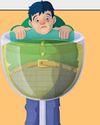
WHY DOES DRINKING ALCOHOL MAKE IT SO MUCH HARDER TO LOSE WEIGHT?
While enjoying the occasional glass of wine or pint of beer may seem harmless, regular or excessive alcohol consumption can significantly hinder your weight-loss journey for a few reasons:

Why do so many New Year's resolutions fail?
Establishing positive new habits is hard at any time of year. But there are ways to stop your attempts ending in failure
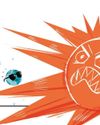
'Extreme' solar radiation storm could hit Earth
Sun-like stars may have tantrums far more frequently than we thought

HOW CAN I BANISH THE JANUARY BLUES?
Dark mornings, long chilly evenings and short days; many people find January tough.
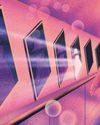
Neutrinos are getting in the way of dark matter detection
These troublesome particles are difficult to detect, but they're starting to show up in places where they're not wanted